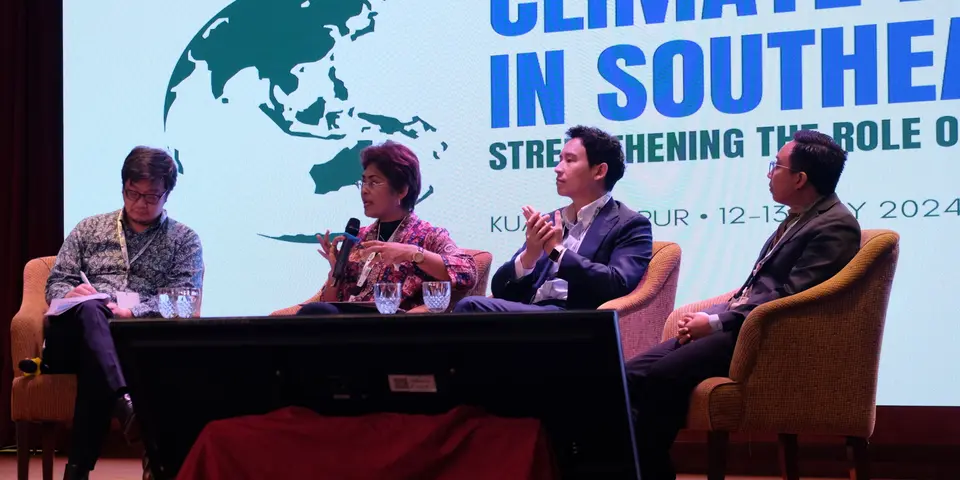
Southeast Asian MPs, stakeholders commit to protect the most vulnerable by addressing climate crisis in the region
July 15, 2024

KUALA LUMPUR – Parliamentarians, government officials, and civil society organizations in Southeast Asia must work together to address the worsening climate crisis, ASEAN Parliamentarians for Human Rights (APHR) said following a regional conference entitled Climate Resilience in Southeast Asia: Strengthening the Role of Parliamentarians.
“Southeast Asia is no stranger to the devastating impacts of climate change. There are endless statistics and data that show us just how imminent the risks are and how the most vulnerable often end up facing the worst of these impacts. We have so much to do and we have to come together,” said APHR Chair and member of the Indonesian House of Representatives Mercy Barends.
The conference, which APHR co-organized with the Parliament of Malaysia, the Malaysian Ministry of Natural Resources and Sustainability, and the Malaysian National Water Services Commission (SPAN), aimed to mobilize parliamentarians from across Southeast Asia to discuss the imminent risks of climate change to the region and curate plans to address these impacts with pragmatic solutions.
“We need this kind of push towards greater political commitment,” said Sharina Abdul Halim, Associate Professor of the Institute for Environment and Development, Universiti Kebangsaan Malaysia, who was a panelist at the conference. “The scientific evidence is clear, but what we need to synergize together is with the political commitment or follow through.”
Over two days, the 200 participants at the conference spoke on a wide range of topics, including the current state of the climate crisis in the region, climate finance, the inclusion of a clean, healthy and sustainable environment as a constitutional right, transitioning to net-zero and developing regional best practices and collaborative solutions for transboundary haze.
“We must ensure that key actors such as legislators and governments allocate state funds for climate initiatives, specifically ensuring equitable and effective movement of capital. This must also include transparency and accountability,” said APHR member and Thai member of parliament Pita Limjaroenrat.
The conference also emphasized the urgent need to address both the environmental and social dimensions of this crisis.
“The impacts of the climate crisis are not abstract threats; they are already the reality for millions of people in the religion. What’s worse is that those marginalized by poverty, discrimination, or even by mere geographic location are disproportionately affected,” said APHR Board Member and former member of the Philippines House of Representatives Teodoro Baguilat, Jr.
Parliamentarians from Indonesia, Thailand, and the Philippines also spoke about their experiences working on environment-related policies.
“If we are to set policy frameworks on our goal to phase out fossil fuels and accelerate the growth of renewable energy sources, it must be fast, it must be fair, and it must be funded,” said APHR member and member of the Philippines House of Representatives Raoul Manuel.
In closing the conference, APHR Board Member and Malaysian member of parliament Wong Chen once again emphasized the importance of collaboration between stakeholders in the region.
“We are all ASEAN Parliamentarians, we need to work together,” said Wong Chen.
ASEAN Parliamentarians for Human Rights (APHR) was founded in June 2013 with the objective of promoting democracy and human rights across Southeast Asia. Our founding members include many of the region's most progressive Members of Parliament (MPs), with a proven track record of human rights advocacy work.